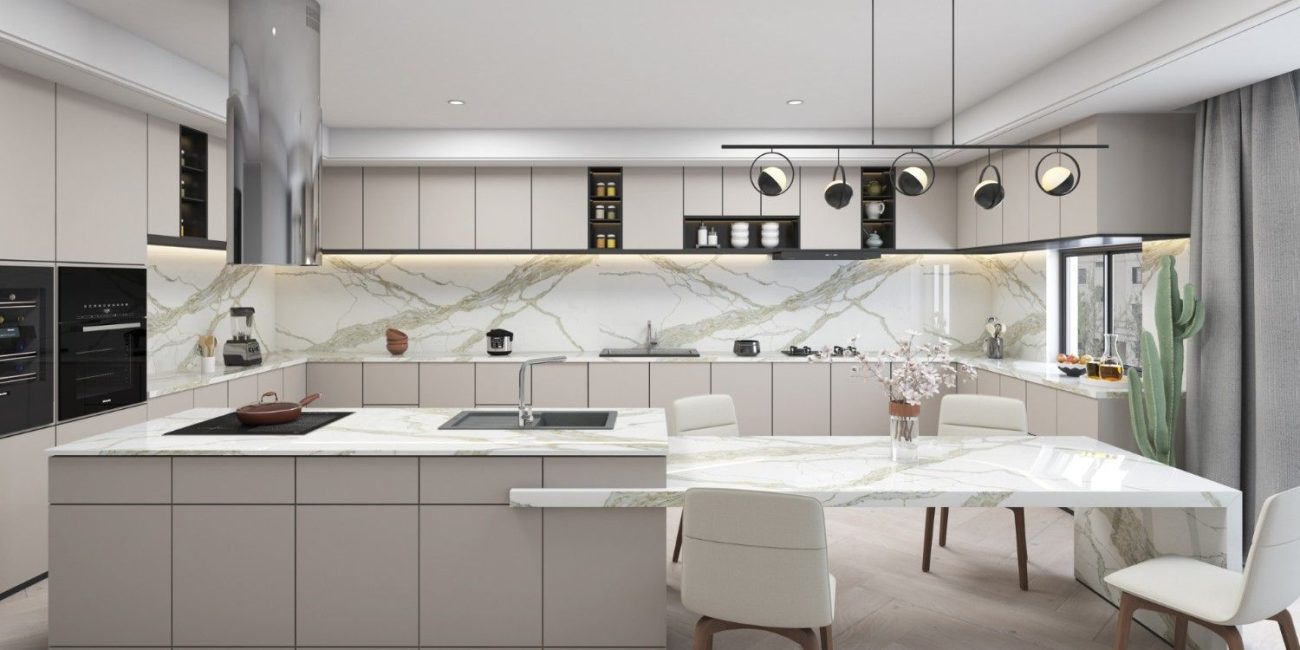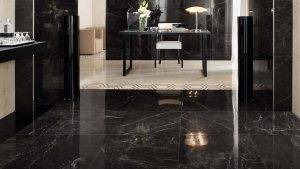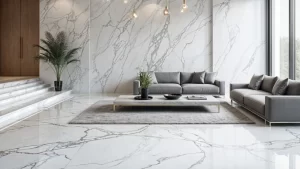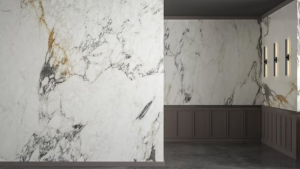Sustainability is becoming a top priority in modern home design, especially in kitchens. Homeowners are increasingly looking for eco-friendly materials that enhance their homes’ aesthetic appeal and minimise environmental impact. Kitchen countertops play a crucial role in this shift, and quartz has emerged as one of the best choices. Unlike natural stone materials that require extensive mining, quartz is engineered using a blend of natural quartz crystals and resins, making it a more sustainable option.
Additionally, quartz countertops are highly durable, require minimal maintenance, and last for decades, reducing the need for replacements. Whether you’re renovating your kitchen or building a new home, choosing the right materials can contribute to an environmentally responsible lifestyle. This blog explores why quartz countertops are the future of sustainable kitchen design and how they compare to other options.
The Role of Quartz in Sustainable Kitchen Countertop Materials
What Makes a Kitchen Countertop Material Sustainable?
A sustainable kitchen countertop material should have the following characteristics:
- Eco-Friendly Sourcing: Materials should be obtained responsibly with minimal impact on the environment.
- Durability: Longer-lasting materials reduce waste and the need for frequent replacements.
- Low Maintenance: A material that requires fewer harsh chemicals for cleaning helps in maintaining an eco-friendly home.
- Energy-Efficient Production: The manufacturing process should consume less energy and generate fewer emissions.
- Recyclability: Materials that can be reused or repurposed contribute to sustainability.
Quartz countertops check all these boxes, making them an excellent choice for environmentally conscious homeowners.
Comparing Quartz to Other Countertop Materials
The following table compares quartz to other common countertop materials in terms of sustainability:
| Material | Durability | Maintenance | Eco-Friendliness | Recyclability |
| Quartz | High | Low | High | Moderate |
| Granite | High | High | Moderate | Low |
| Marble | Moderate | High | Low | Low |
| Laminate | Low | Low | Low | Low |
| Recycled Glass | High | Low | High | High |
Benefits of Quartz Countertops for Sustainability
- Durability and Longevity: Quartz countertops are built to last, making them an eco-friendly option. Unlike natural stones that are prone to chipping and cracking, quartz is engineered for durability. A high-quality quartz countertop can last for decades with minimal wear and tear. This reduces the need for frequent replacements, ultimately lowering environmental impact.
- Non-porous surface: Quartz is non-porous, which means it does not absorb liquids. This feature prevents bacteria and mould growth, ensuring a hygienic kitchen environment. Additionally, non-porous surfaces require fewer harsh chemicals for cleaning, further promoting sustainability.
- Energy-Efficient Manufacturing: Compared to natural stone extraction, which requires extensive mining, quartz is engineered in factories using a controlled process. Many quartz manufacturers incorporate recycled materials into their products, reducing waste and energy consumption.
- Eco-Friendly Composition: Many quartz countertops contain a significant percentage of recycled materials. Additionally, manufacturers are adopting greener practices, such as using renewable energy sources and reducing water consumption in production.
- Low Maintenance Requirements: Unlike marble and granite, quartz requires no sealing and minimal cleaning. For durable, eco-friendly options, check with a Quartz supplier in Jordan.
Quartz Countertops and Eco-Friendly Design
Quartz seamlessly integrates with modern, sustainable kitchen designs. It is available in various colours, textures, and finishes, allowing homeowners to achieve their desired aesthetic without compromising on sustainability. Whether you prefer a minimalist white countertop or a bold veined design, quartz offers versatile options.
Additionally, choosing a reputable Quartz supplier in the UAE ensures that you get high-quality materials that align with sustainable building practices. The same applies to homeowners in Qatar, Kuwait, Jordan, and Lebanon, where trusted suppliers offer eco-friendly quartz options.
Guide to Selecting the Perfect Quartz Countertop for Your Kitchen
Key Factors to Consider When Choosing a Quartz Countertop:
- Sustainability Certifications: Look for certifications such as Greenguard or NSF, which indicate eco-friendly manufacturing.
- Recycled Content: Some quartz countertops contain recycled glass or other sustainable materials.
- Supplier Reputation: Opt for a reliable Quartz supplier in Qatar to ensure you receive ethically sourced materials.
- Colour and Design: Choose a countertop that complements your kitchen style while maintaining eco-friendly principles.
Where to Buy High-Quality Quartz Countertops
Finding a reputable supplier is essential to ensure durability, aesthetics, and sustainability. If you’re looking for premium quartz countertops, consider the following:
- Choose Trusted Suppliers: Look for a Quartz supplier in Kuwait, Jordan, or Lebanon that specializes in high-quality, eco-friendly quartz materials.
- Check Certifications: Opt for suppliers that offer certified sustainable quartz with GREENGUARD, NSF, or LEED certifications for low emissions and health safety.
- Explore Recycled Quartz Options: Many suppliers provide quartz slabs made from recycled materials, reducing environmental impact.
- Compare Product Quality: Look for high quartz content (90% or more) in engineered stone to ensure durability and long-lasting performance.
- Assess Manufacturing Practices: Choose suppliers who use low-VOC resins and eco-friendly production methods to support sustainable living.
- Review Customer Feedback: Check reviews and testimonials to ensure the supplier has a strong reputation for quality and service.
- Request Samples: Before purchasing, request samples from a Quartz supplier in Lebanon to assess colour, texture, and durability to match your kitchen design.
- Verify Warranty & After-Sales Support: Reliable suppliers offer warranties on quartz countertops and provide maintenance guidance for long-term care.
Innovations in Sustainable Quartz Manufacturing
As sustainability becomes a greater priority, manufacturers are adopting new methods to make quartz countertops even more eco-friendly. Some of these innovations include:
- Water Recycling Systems: Many quartz manufacturers have started using closed-loop water recycling systems to minimise water waste during production.
- Use of Solar Energy: Some factories now operate using solar-powered energy to reduce carbon footprints.
- Bio-Based Resins: Research is underway to replace synthetic resins with plant-based alternatives, further improving the sustainability of quartz surfaces.
- Carbon-Neutral Manufacturing: Some leading brands are committing to carbon-neutral production processes, ensuring minimal environmental impact.
These advancements continue to enhance quartz’s reputation as a sustainable choice for modern kitchens.
Conclusion
Choosing quartz countertops for your kitchen is a smart and sustainable decision. With their durability, eco-friendly manufacturing process, and minimal maintenance requirements, quartz countertops help reduce environmental impact while providing a stylish and functional surface. As innovations continue to improve the sustainability of quartz, it remains a top choice for homeowners looking to create an environmentally responsible kitchen. By selecting a trusted quartz supplier in the UAE, you ensure high-quality materials that align with modern, sustainable living.
Frequently Asked Questions
[helpie_faq group_id=’153’/]






